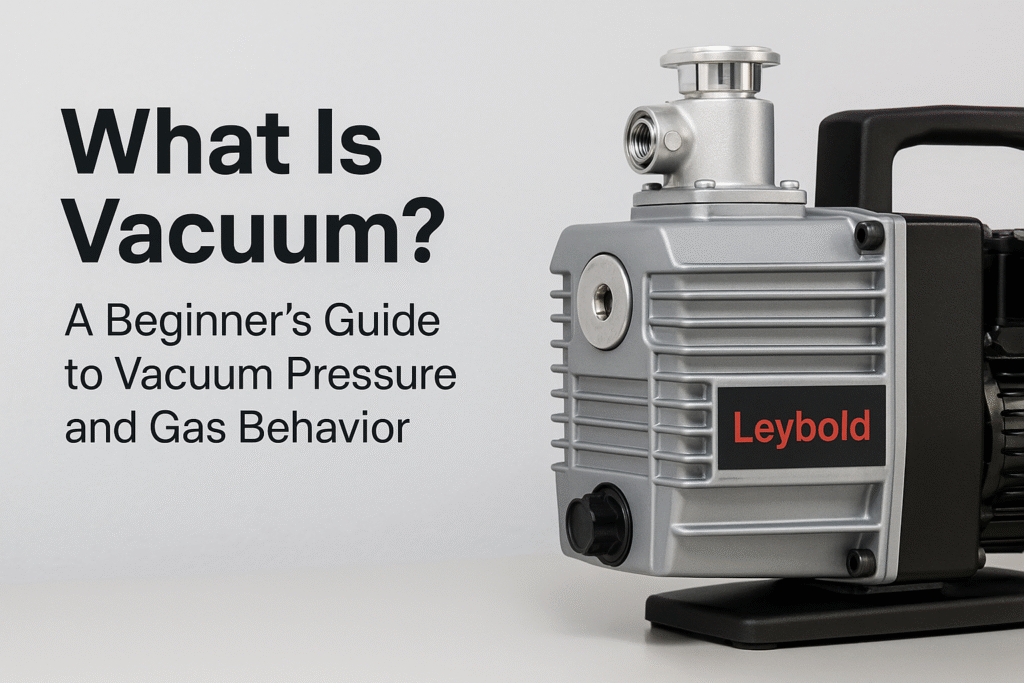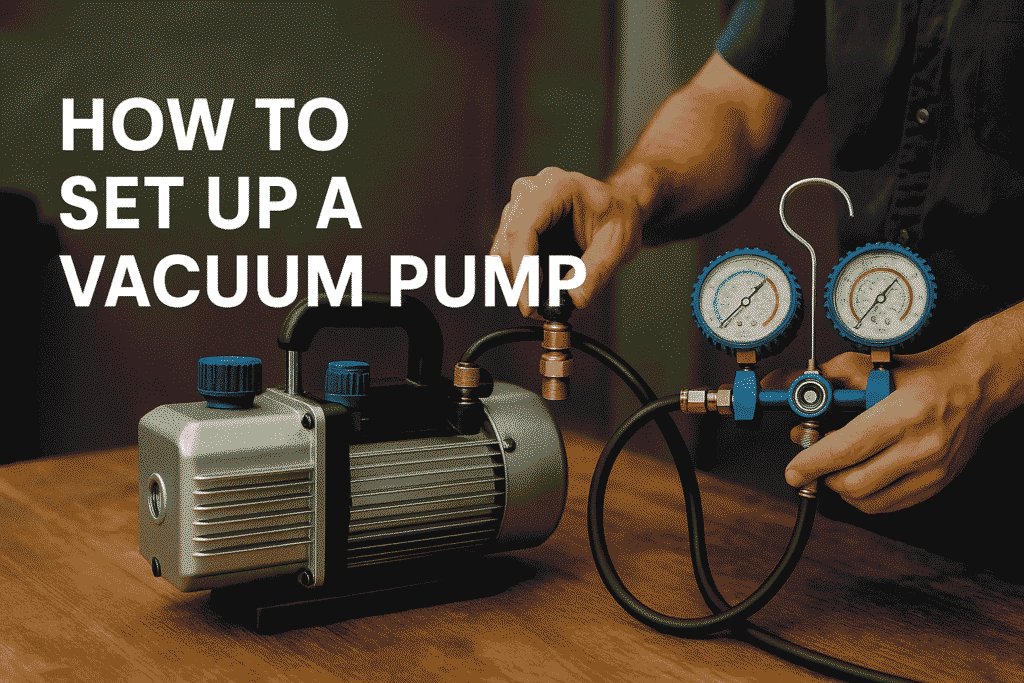When it comes to vacuum technology, one of the most common questions is: what type of oil does a vacuum pump use? The answer depends on the type of pump and the application it is serving. Choosing the right oil is critical because it directly affects performance, efficiency, and the life of the pump.
At Leybold Exim, we offer a wide range of vacuum pumps—from oil-sealed rotary vane pumps to dry-compressing pumps and Roots blowers. Let’s break down which pumps require oil, which operate oil-free, and the role oil plays in extending the reliability of your system.
Table of Contents
Why Vacuum Pump Oil Matters
Vacuum pump oil is more than just a lubricant. In oil-sealed pumps, it:
- Provides sealing between moving components for stable vacuum levels.
- Ensures smooth lubrication, reducing friction and wear.
- Aids in heat dissipation, keeping the pump cool during long operations.
- Helps capture contaminants such as water vapor or chemicals.
Using the wrong oil can cause reduced efficiency, higher energy use, and premature pump failure.
Types of Vacuum Pump Oils
- Mineral Oils – Standard for many rotary vane pumps, offering reliable sealing and lubrication.
- Synthetic Oils – Designed for demanding applications, resistant to breakdown under extreme heat or aggressive gases.
- Silicone and Polyphenyl Ether Oils – Used in high-vacuum systems such as diffusion pumps, capable of withstanding high temperatures and reactive environments.
Which Leybold Exim Pumps Use Oil?
Leybold Exim offers a wide selection of pumps to suit different industries. Here’s how oil plays a role in each type:
Oil-Sealed Rotary Vane Pumps
- SOGEVAC
- SOGEVAC NEO D
- TRIVAC L
These pumps require special rotary vane pump oil to ensure proper sealing and smooth operation. The oil is crucial for achieving reliable vacuum levels and reducing maintenance downtime.
Oil-Free Dry Pumps
- CLAWVAC
- VARODRY
- NOVADRY
- DRYVAC
- SCREWLINE
These pumps are designed for applications where contamination must be avoided. They operate without oil in the compression chamber, making them perfect for clean environments such as food, pharmaceuticals, and electronics.
Roots Blowers
- RUVAC
Roots blowers themselves don’t use oil in the compression stage, but they are often paired with oil-sealed or dry pumps. They help boost pumping speed and improve overall system efficiency.
Choosing the Right Oil for Performance
- For SOGEVAC, SOGEVAC NEO D, and TRIVAC L, always use high-quality rotary vane vacuum pump oil as recommended by the manufacturer.
- For diffusion pumps or applications requiring high vacuum levels, use silicone or synthetic specialty oils.
- For dry pumps like CLAWVAC, VARODRY, NOVADRY, DRYVAC, and SCREWLINE, no pump oil is needed in the compression area, simplifying maintenance.
Final Thoughts
The type of oil your vacuum pump requires depends entirely on the pump model and application. Oil-sealed pumps such as SOGEVAC, SOGEVAC NEO D, and TRIVAC L rely on specialized vacuum pump oils for peak performance, while dry pumps like CLAWVAC, VARODRY, NOVADRY, DRYVAC, and SCREWLINE eliminate oil from the process altogether. Meanwhile, RUVAC Roots blowers enhance system efficiency and typically operate in combination with either oil-sealed or dry pumps.
By selecting the right oil—or oil-free solution—you ensure longer pump life, reliable vacuum levels, and cost-effective performance.



